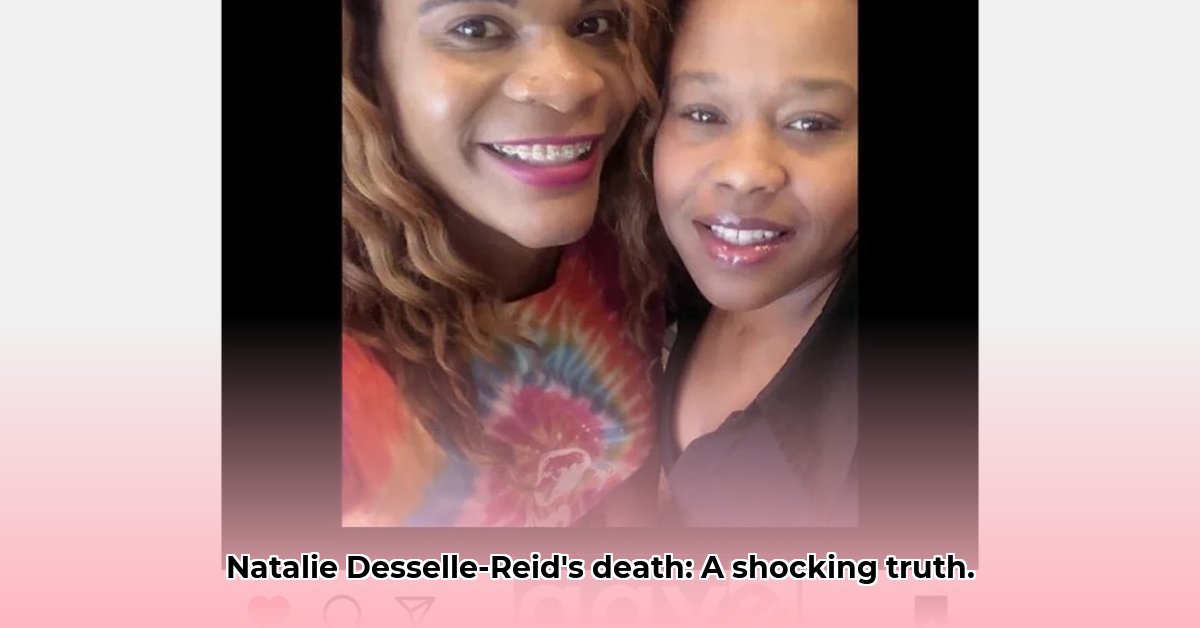
The sudden death of actress Natalie Desselle-Reid at 53 from colon cancer sent shockwaves through the entertainment industry and beyond. Her passing, however, serves as a tragic illustration of a far larger issue: the significant racial disparities in colorectal cancer incidence and mortality rates in the United States. While advancements have been made in reducing overall colorectal cancer deaths, Black Americans continue to experience disproportionately higher rates of diagnosis and death, highlighting a critical need for systemic change and improved healthcare access. This article will explore the complexities of this health disparity, examining the biological and systemic factors contributing to this crisis and outlining actionable steps toward a more equitable future.
Understanding Colorectal Cancer: A Silent Killer
Colorectal cancer, affecting the large intestine (colon and rectum), begins with the development of precancerous polyps. These small growths often present no symptoms in their early stages, allowing the disease to progress undetected. While anyone can develop colorectal cancer, certain risk factors increase susceptibility. These include age (risk significantly increases after age 50), a family history of the disease, a diet low in fiber and high in processed foods, insufficient physical activity, obesity, and smoking.
Early symptoms, such as alterations in bowel habits (constipation, diarrhea, or a change in stool consistency), blood in the stool, and persistent abdominal discomfort, are often subtle and easily overlooked. This underscores the critical importance of regular screenings for early detection, as early diagnosis drastically enhances the chances of successful treatment and survival.
Stark Realities: Racial Disparities in Colorectal Cancer Statistics
The statistics paint a grim picture of racial disparities in colorectal cancer. Black Americans consistently experience higher incidence and mortality rates compared to white Americans. This difference isn't marginal; it's substantial and deeply concerning. Furthermore, access to preventative screenings and quality care is often significantly lower in Black communities. This disparity is not simply a matter of chance; it stems from a complex interplay of biological and systemic factors.
| Characteristic | Black Individuals | White Individuals | Explanation |
|---|---|---|---|
| Incidence Rate | Higher | Lower | A greater number of Black individuals are diagnosed with colorectal cancer. |
| Mortality Rate | Significantly Higher | Significantly Lower | Tragically, a greater percentage of Black individuals die from colorectal cancer. |
| Access to Screening | Often Lower | Often Higher | Fewer Black individuals receive timely and appropriate screening tests. |
| Access to Quality Care | Frequently Lower | Frequently Higher | Black individuals often encounter barriers to accessing necessary specialists and timely treatment. |
Unraveling the Complexities: Why the Disparity?
The reasons behind these disparities are multifaceted and complex, involving both biological and systemic factors. While research into the exact genetic and environmental interplay is ongoing, several critical components have been identified:
Healthcare Access: Limited access to quality healthcare, often due to lack of insurance or financial constraints, significantly contributes to delayed diagnosis and treatment, resulting in poorer outcomes. This is further exacerbated by geographical limitations, leading to reduced access to specialist care for many Black Americans.
Socioeconomic Factors: Lower socioeconomic status, disproportionately affecting Black communities, limits access to healthy food options and increases exposure to risk factors like processed foods and lack of physical activity. The cost of regular screening and treatment itself can be a significant barrier for those facing financial hardship.
Cultural Beliefs and Mistrust: A history of systemic racism and discrimination within the healthcare system has understandably fostered mistrust among some members of the Black community, leading to hesitancy in seeking medical care, even in the presence of concerning symptoms.
Implicit Bias: Studies suggest that unconscious biases, even among well-intentioned healthcare professionals, can impact the quality of care received by Black patients, potentially leading to less thorough examinations, delayed referrals, and less effective treatment.
Natalie Desselle-Reid: A Human Face to the Statistics
Natalie Desselle-Reid's death serves as a powerful and heartbreaking illustration of the human cost of these disparities. While the specifics of her individual case remain private, her story underscores the urgent need to address the systemic issues at play and improve access to equitable healthcare.
Pathways to Change: Charting a Course Toward Equity
Addressing these disparities requires a comprehensive, multi-pronged strategy:
Enhanced Awareness: Targeted public health campaigns, designed specifically to reach Black communities, are crucial. These campaigns must utilize culturally appropriate messaging and address existing mistrust and lack of awareness.
Improved Access to Care: Expanding access to affordable healthcare, including insurance coverage and financial assistance programs, is paramount. This must also include ensuring that geographic barriers do not prevent access to necessary screening and treatment.
Mitigation of Systemic Bias: Systemic change requires proactive measures to address implicit bias within the healthcare system through extensive training on cultural competency and unconscious bias for healthcare professionals.
Community-Based Initiatives: Collaborating with established community leaders and organizations is fundamental for fostering trust and increasing access to healthcare in underserved communities. This engagement must be built on mutual respect and a deep understanding of specific community needs.
Natalie Desselle-Reid's legacy should inspire a collective commitment to addressing these preventable health disparities. The pain of her loss can fuel a movement towards a more equitable healthcare system, ensuring no one else suffers a similar fate. It is time for collective action to transform grief into meaningful progress.